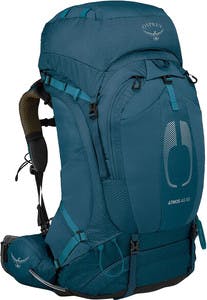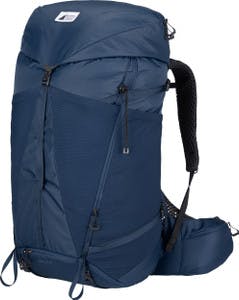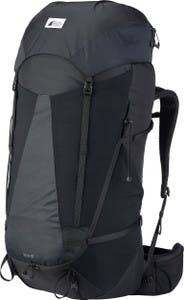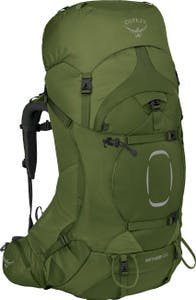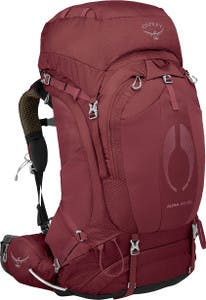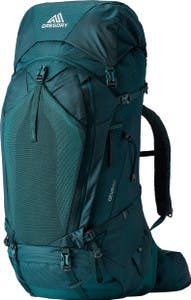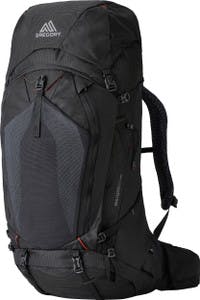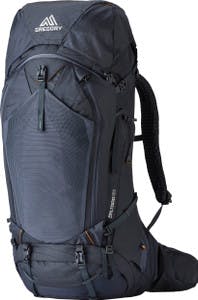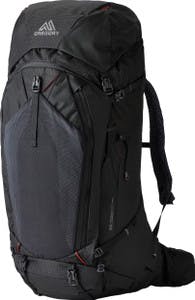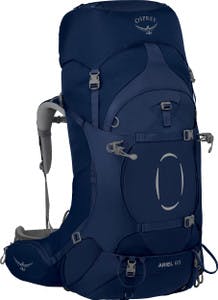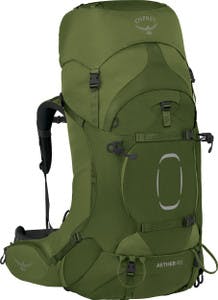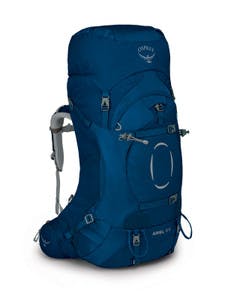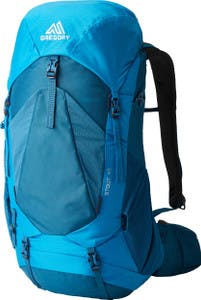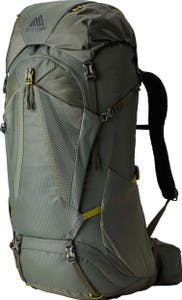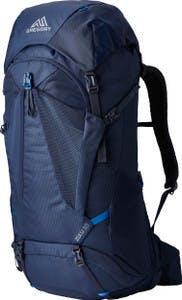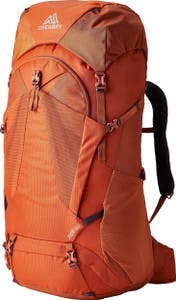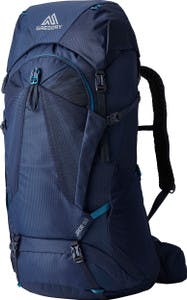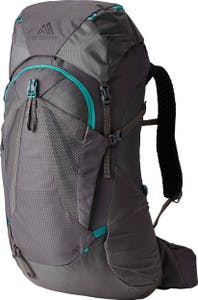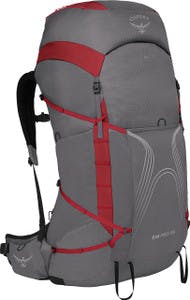Hiking & backpacking packs
Shop by size
- (39)Osprey Atmos AG 65 Backpack - Men's$439.95
- (16)Gregory Zulu 45 Backpack - Unisex$279.95
- (5)MEC Zephyr 65L Backpack - Men's$215.94$269.95
- (16)MEC x SERRATUS Pace UL 40 Pack - Unisex$189.95
- (0)MEC Vista 45L Backpack - Women's$159.94$209.95
- (7)MEC Vista 70L Backpack - Men's$199.94$249.95
- (21)Osprey Aether 65 Backpack - Men's$419.95
- (1)MEC Zephyr 45L Backpack - Women's$179.94$229.95
- (5)Osprey Talon 44 Backpack - Unisex$299.95
- (14)Osprey Aura AG 50 Backpack - Women's$409.95
- (5)Fjallraven Abisko 35 Backpack - Unisex$229.95
- (6)Osprey Atmos AG 50 Backpack - Men's$409.95
- (0)Mammut Trion 50 Backpack - Unisex$274.95
- (11)Osprey Aura AG 65 Backpack - Women's$439.95
- (13)Osprey Eja 58 Backpack - Women's$329.95
- (0)Osprey Ace 38 Backpack - Youths$209.95
- (6)Gregory Deva 80 Pro Backpack - Women's$549.95
- (23)Gregory Deva 60 Backpack - Women's$459.95
- (11)Gregory Baltoro 85 Pro Backpack - Unisex$549.95
- (43)Gregory Baltoro 75 Backpack - Unisex$499.95
- (41)Gregory Baltoro 65 Backpack - Unisex$459.95
- (5)Gregory Baltoro 100 Pro Backpack - Unisex$579.95
- (1)Osprey Ariel Pro 75 Backpack - Women's$549.95
- (0)Osprey Aether 75 Pro Backpack - Unisex$549.95
- (0)Osprey Ariel 65 Extended Fit Backpack - Women's$419.95
- (2)Osprey Aether 65 Extended Fit Backpack - Men's$419.95
- (8)Osprey Ariel 65 Backpack - Women's$419.95
- (32)Osprey Exos 58 Backpack - Unisex$329.95
- (2)Osprey Tempest 44 Backpack - Women's$299.95
- (2)Gregory Maven 58 Backpack - Women's$369.95
- (3)Gregory Paragon 60 Backpack - Unisex$369.95
- (1)Gregory Maven 48 Backpack - Women's$339.95
- (0)Gregory Paragon 50 Backpack - Unisex$339.95
- (0)Gregory Amber 68 Plus Size Backpack - Women's$329.95
- (0)Gregory Amber 68 Backpack - Women's$329.95
- (1)Gregory Amber 54 Backpack - Unisex$299.95
- (1)Gregory Stout 70 Plus Size Backpack - Unisex$329.95
- (2)Gregory Stout 45 Plus Size Backpack - Unisex$279.95
- (0)Gregory Stout 55 Backpack - Unisex$299.95
- (7)Gregory Zulu 65 Backpack - Unisex$379.95
- (6)Gregory Zulu 55 Backpack - Unisex$349.95
- (9)Gregory Jade 63 Backpack - Women's$379.95
- (6)Gregory Jade 53 Backpack - Women's$349.95
- (12)Gregory Jade 43 Backpack - Women's$279.95
- (0)Osprey Ace 50 Backpack - Youths$249.95
- (12)Gregory Deva 70 Backpack - Women's$499.95
- (9)Gregory Denali 75 Backpack - Unisex$409.94$549.95
- (8)Osprey Eja Pro 55 Backpack - Women's$379.95
- (6)MEC Vista 70L Backpack - Women's$199.94$249.95
- (3)Black Diamond Beta Light 30 Pack - Unisex$459.95
- (7)Black Diamond Beta Light 45 Pack - Unisex$499.95
- (0)Fjallraven Abisko Trek 65 Backpack - Unisex$394.95
Compare (0)
Hiking and backpacking packs for all types of adventures
If you’re planning an extensive backcountry trek or just need a good pack for a long trip, having a solid backpacking pack is essential to carry your gear comfortably and keep you moving efficiently. Hiking and backpacking packs come in several sizes, styles and features designed to suit the many different activities and personal preferences you may be leaning towards. MEC carries backpacks from brands like Gregory, Osprey, Black Diamond and our own MEC Label, all perfect for your next great expedition.
Helpful resources
Frequently asked questions
What size backpack do I need for hiking or backpacking?
The size depends on how long your trip is and how much gear you need to carry. Day hikes usually require packs between 15 and 30 litres, weekend trips often need 40 to 60 litres, and multi-day backcountry treks may call for 65 litres or more.
What features should I look for in a backpacking pack?
Look for a pack with a supportive frame, padded shoulder straps, and a hip belt to help distribute weight. Adjustable torso length and load lifter straps improve comfort. Features like hydration bladder compatibility, external gear loops, and multiple compartments can also make your trip easier.
What is the difference between a hiking pack and a backpacking pack?
Hiking packs are generally smaller and designed for single-day use, while backpacking packs are larger and built to carry enough supplies for multiple days. Backpacking packs typically have stronger suspension systems and more storage options to manage heavier loads.
Hiking and backpacking pack buyer’s guide
Packs for extended treks
For longer trips or overnight adventures, a multi-day backpack is your best bet. These packs usually have a capacity of 40 to 80 liters, providing ample space for camping gear, food, clothing and other necessities. Features like adjustable suspension systems, padded hip belts, and load lifters help distribute weight evenly, reducing strain on your shoulders and back. Many multi-day packs also include compartments for hydration reservoirs, external gear loops and rain covers to protect your belongings in wet conditions. Look for durable materials and thoughtful designs to ensure your pack holds up to the demands of the trail. Some packs are tailored to specific activities. For example, ultralight packs cater to minimalist hikers looking to cut down on weight, while technical climbing packs are designed for carrying ropes, harnesses and other climbing equipment.
Fitting a backpack
Most large-capacity packs come in different sizes to suit a range of body shapes, so it is important to look for a back length or torso length measurement when shopping, since this is a better indication of how the pack will fit than your overall height. No matter how big the pack is, when it is correctly sized and adjusted it should feel like an extension of your own body. To determine your back length, find the most prominent vertebrae in your neck at about the same level as the top of your shoulders, then locate the top of your hipbone and trace a line around to the middle of your back. The distance between these two points is your back length and will help guide your pack selection. Once you have the right size, it is useful to put about 8 to 10 kilograms of weight inside the pack and loosen all the straps, including the stabilizer straps at the top of the shoulder straps, before making adjustments to achieve the best fit.

